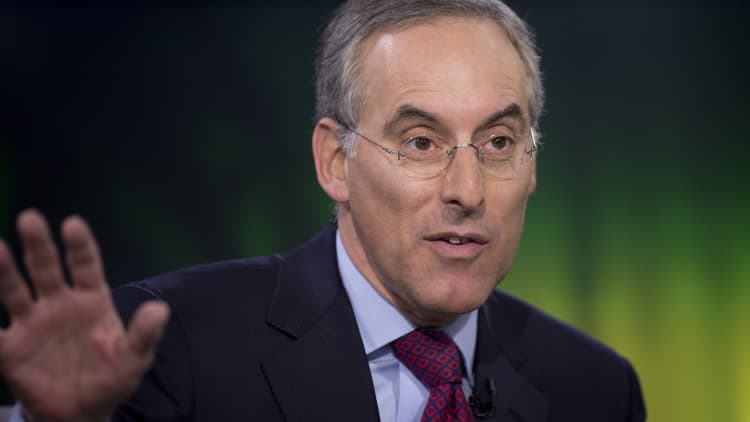
The decision from the People's Bank of China (PBoC) to devalue its currency caused the largest fall in the yuan in over two decades.
And while it might signal how desperate China has become after reporting a drop in exports of 8 percent, it doesn't exactly spell disaster for U.S. companies, according to Goldman Sachs Chief Equity Strategist David Kostin.
"Two-thirds of the revenues of U.S. corporations are domestic," he told CNBC's "Squawk on the Street" in an interview. "So the real driver of the economy, and the market, is really domestic demand and there is some evidence [with] the job market here in the U.S. that things are getting a little bit better."
Read More Currency war? How China devaluation may impact Fed
But with slowing sales growth and modest economic expansion, Kostin added that capital spending and corporate repurchases would only be able to contribute so much of a boost against new headwinds to keep the market where it is.
"Valuation, lack of earnings growth, Fed hike on the horizon—that's sort of the see-saw [that] basically leads you to 'flat is the new up,' " he said. "You should be expecting that kind of a return in this market."
Read More How to anger Asia, Fed in one shot: Devalue the yuan
That much is reflected in Kostin's reaffirmed end-of-the-year price target of 2,100 for the S&P 500. However, the strategist, who expects a December rate hike, hinted anything earlier could be problematic, saying "the idea of a higher rate environment would be a concern."
With that in mind, combined with China's troubles, Kostin advised investors to focus more on cyclicals, favor value more than growth, and emphasized avoiding companies that might be overexposed internationally.


